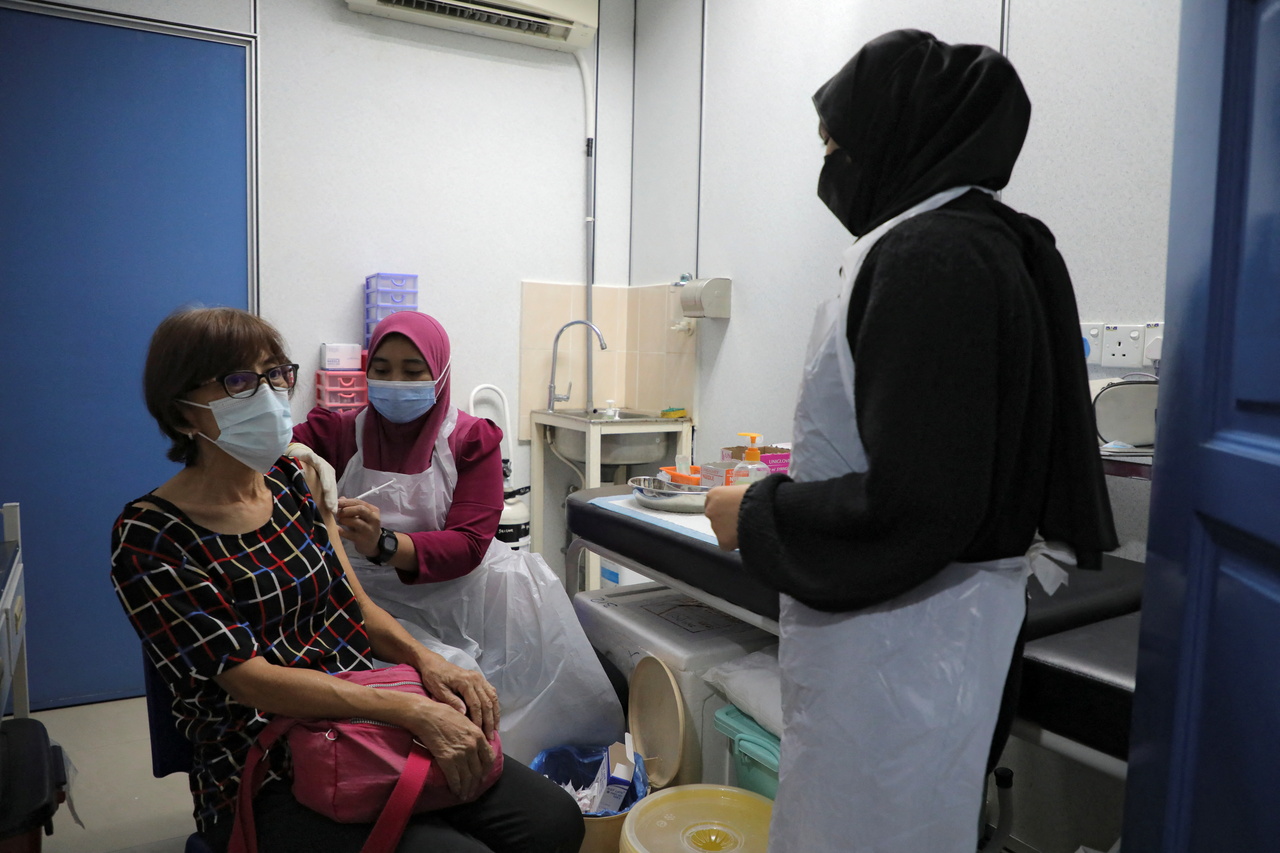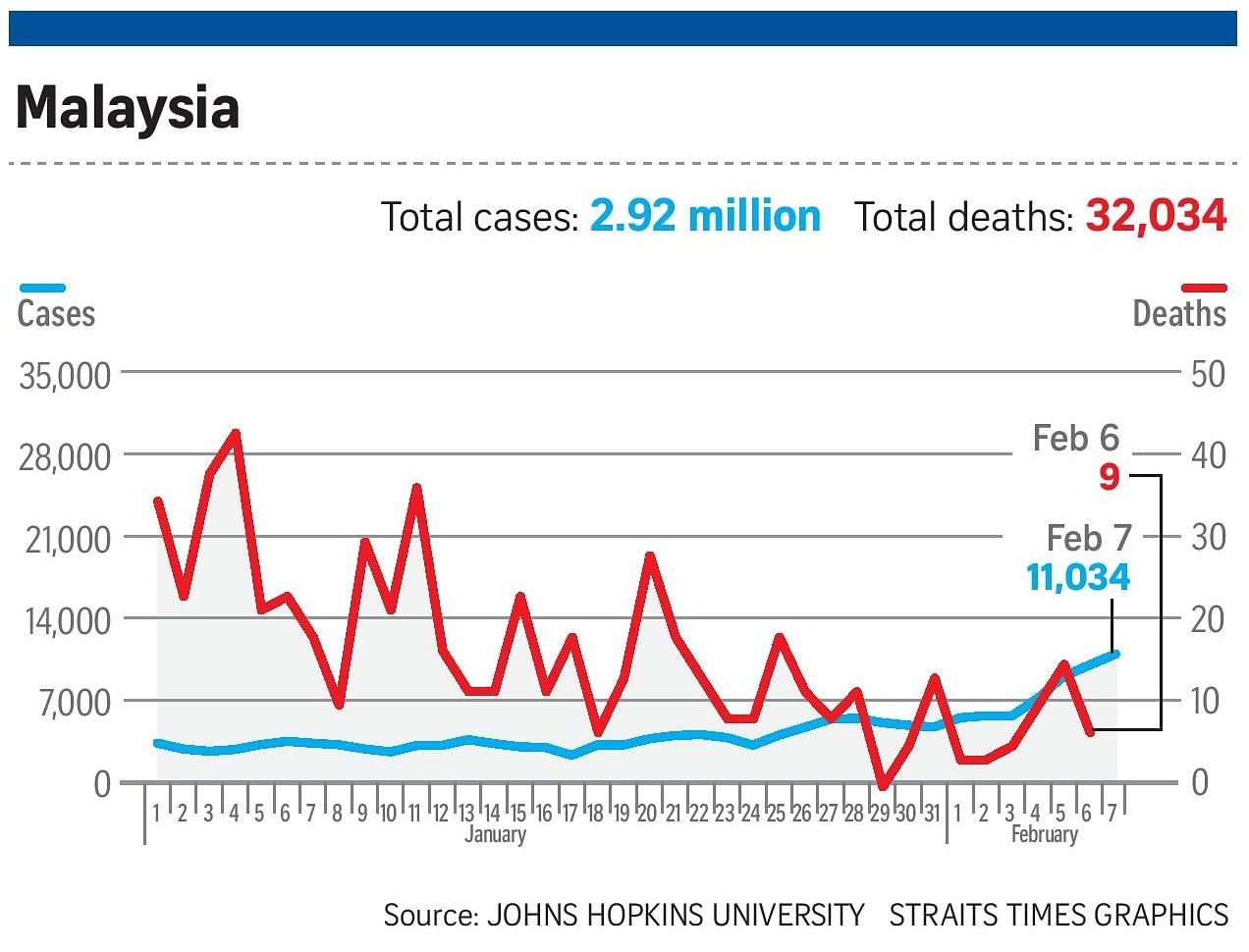High-risk groups in Malaysia must take booster shot to retain Covid-19 vaccination privileges
Sign up now: Get ST's newsletters delivered to your inbox

More than one million senior citizens in Malaysia have not taken their booster shots.
PHOTO: REUTERS
Follow topic:
KUALA LUMPUR - Selected high-risk groups will lose full vaccination privileges if they do not take a booster shot by the end of this month, as Malaysia attempts to "blunt" the impact of an ongoing Omicron wave.
The Covid-19 variant is expected to exponentially increase the daily caseload in the coming weeks.
Health Minister Khairy Jamaluddin said on Monday (Feb 7) that senior citizens - those above 60 years old - who have taken only two doses of the Covid-19 vaccine will lose their fully vaccinated status if they do not take a booster shot by March 1.
The same applies to all Malaysians who have taken two doses of the China-made Sinovac vaccine, which the ministry said is less effective than other vaccines.
Some 3.5 million Sinovac recipients have yet to take their booster shots, while 32 per cent of senior citizens - more than one million of them - have not taken their booster shots.
Malaysia allows for walk-ins at its vaccination centres and will also start offering Sinovac boosters to those who do not want to take other vaccines.
Many social sector privileges - such as dining in eateries and domestic tourism - are reserved for those with the fully vaccinated status.
Malaysia is pushing aggressively for a high booster-dose coverage in its battle against the Omicron wave, which started over the past week and has sent cases soaring back to tens of thousands a day.
The country recorded 11,034 cases on Monday. It reported 10,089 cases on Sunday, the first time in more than four months that new cases have breached the five-figure mark.
Mr Khairy said the Health Ministry's current mathematical model estimates that the Omicron wave will peak around the end of March.
Despite the surge in cases, Malaysia is looking to optimise its healthcare resources instead of instituting any economic or social curbs.
It said data shows that Omicron so far is proving to be milder than the Delta variant, which killed tens of thousands of Malaysians last year during the country's worst Covid-19 wave.
"We have tried our best to postpone Omicron as much as possible. But because of the reopening of the economy, the return of travellers and recent festivities, we are no longer able to delay the wave," Mr Khairy said during a press meet on Monday.
However, he said Malaysia was still "on the right path" in its Covid-19 management. "As long as deaths and intensive care usage are not rising, we believe we can manage this wave," he said.
Despite registering five-digit infection numbers, Malaysia continued to report single-digit deaths in recent days. On Sunday, nine deaths were recorded.
Despite registering 34 per cent more new cases in the first week of February than in the final week of January, weekly deaths dropped by 8 per cent in the country, while occupancy in intensive care units dropped by 1 per cent, Mr Khairy said.
Only 0.8 per cent of cases reported in the past week had more severe symptoms.
Mr Khairy on Monday said that in anticipation of a spike in cases, asymptomatic and mildly symptomatic Covid-19 patients can isolate at home when they are found to be positive during self-testing, without the need for confirmatory tests.
To contain the Delta outbreak last year, Malaysia resorted to a months-long lockdown, which badly crippled the economy. The economy was reopened domestically from October last year when longstanding domestic travel curbs were lifted.
Malaysia clocked its highest number of daily infections - 24,599 cases - on Aug 26 last year, while its record number of deaths of 592 deaths was logged on Sept 11.


